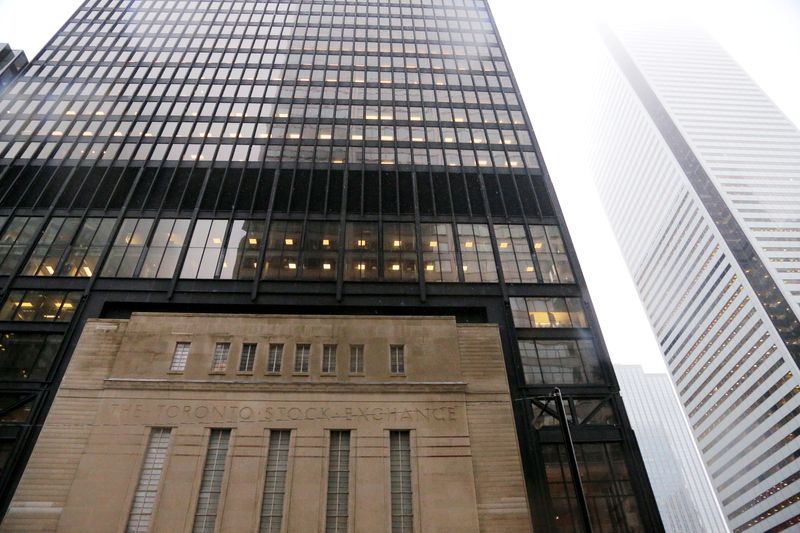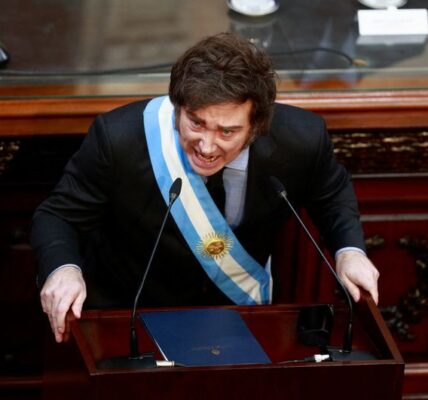Canada’s commodity-linked main stock index ended more than 10% below its January 30 record closing high on Friday, confirming a correction, as China’s move to retaliate against U.S. trade tariffs spooked investors globally.
The Toronto Stock Exchange’s S&P/TSX composite index fell 1,142.30 points, or 4.7%, to 23,193.47, its lowest closing level since September 10 and its biggest decline since March 2020 at the start of the COVID-19 crisis.
Since Wednesday, when the U.S. unveiled sweeping tariffs on other countries, the index has lost 8.4%, while it posted a weekly decline of 6.3%.
“Markets are clearly in risk-off, defensive mode,” said Angelo Kourkafas, senior investment strategist at Edward Jones.
“Investors may be hesitant to be long or maybe cautious about potential new retaliatory announcements coming out in addition to what we heard today from China.”
China retaliated with additional tariffs of 34% on all U.S. goods from April 10, intensifying a trade war between the two leading global economies and amplifying fears of a recession.
“Clearly the longer this drags on we’re going to see negative earnings revisions,” Kourkafas said.
U.S. jobs data showed some resilience in March but Canada’s economy shed 33,000 jobs, the first decrease in more than three years, as tariff uncertainty took a toll on hiring.
All ten major sectors ended lower, led by an 8.7% drop for energy as the price of oil settled at its lowest level since April 2021.
Gold and copper prices also tumbled. The materials group, which includes metal mining shares, lost 8%.
Shares of copper producer First Quantum Minerals Ltd were down 11.6%.
Heavily weighted financials fell 4.1% and technology ended 3.7% lower.
Please like, comment, and share this article if you found it helpful and
informative.
For more news check out Big Town Bulletin News
For more from Big Town Bulletin check out Big Town Bulletin




